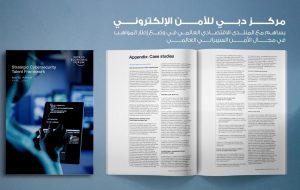Over 150 major companies have raised concerns about the European Union’s plans to regulate artificial intelligence technology, stating that it may harm Europe’s competitiveness without providing sufficient solutions to address the challenges.
Calls for regulatory controls have recently increased due to the widespread adoption of artificial intelligence software, most notably OpenAI’s “ChatGPT”, which demonstrated incredible capabilities as well as significant potential risks.
Earlier this year, the European Parliament endorsed a proposed law that would form the basis for the first comprehensive regulations for governing artificial intelligence technologies worldwide.
The proposed law includes specific provisions for generative artificial intelligence systems, such as “ChatGPT” and “DALL-E,” capable of generating texts, images, and other media.
The European Parliament and the 27 member states of the EU will negotiate these rules before their approval, however, the EU plans to reach an agreement this year.
The rules require the explicit disclosure of any content created by artificial intelligence and impose restrictions on certain artificial intelligence systems, including real-time facial recognition.
Officials from major companies, including European Airbus, French companies Peugeot and Renault, German company Siemens, and the American Meta (owner of Facebook), expressed their concerns in an open letter addressed to the European Union institutions stating, “In our assessment, the proposed law will endanger Europe’s competitiveness and technological sovereignty without effectively addressing the current and future challenges.”
A Warning
The signatories of the letter warned that generative artificial intelligence will be subjected to “strict controls” under the proposed law, which could prompt “companies with strong innovative capabilities” to move their activities outside Europe, and investors may withdraw their capital from the region.
The letter further added that “the result will be a critical productivity gap between the Atlantic shores.”
One of the Members of the European Parliament who led the legislation, Dragoș Tudorache, said that he is “convinced” that the letter’s signatories “haven’t read the text carefully” and that “concrete proposals” mentioned in the letter are already included in the text. He expressed disappointment that an aggressive and misleading pressure group influenced serious companies.
Furthermore, he highlighted that the complaint undermines Europe’s undeniable leadership in this field on the global stage.













